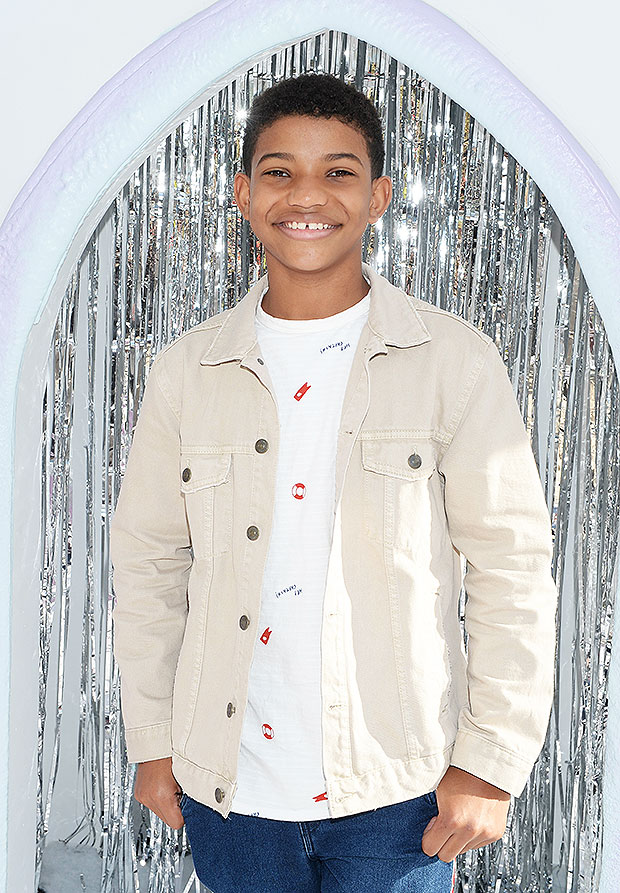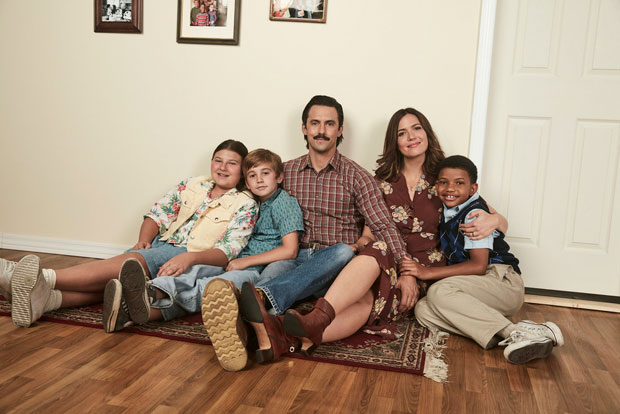
Lonnie Chavis sounds wise beyond his years in an essay about what it means to be a “12-year-old Black boy” in America. This is because the This Is Us star, who plays the younger version of Randall Pearson on the ABC drama, has been subject to fear that no child should ever face. From encounters with cops to experiences in Hollywood, Lonnie shared his stories in a moving essay published by People on June 17 amid the Black Lives Matter movement.

“My life matters, but does it? America paints a very clear picture of how I should view myself. America shows me that my Blackness is a threat, and I am treated as such,” Lonnie began. “I actually didn’t learn about being Black and what that would mean for me until I was 7 years old. I thought I was a peach man, so my parents educated me on being a Black man really quick with long talks, books and movies like and Malcolm X. I was overwhelmed with confusion, fear and sadness. I had to lean on my faith in Christ for hope, protection and understanding.”
Starring on a famous drama alongside actors like Sterling K. Brown, Mandy Moore and Milo Ventimiglia didn’t protect Lonnie from prejudice — in fact, it made Lonnie even more aware of racism. “Being a young Black boy in Hollywood made it even more fearful,” he continued. “I can recall the time when I realized there are not a lot of people that look like me on these Hollywood sets and asked my mom where all the Black people were. I also remember being invited to events but then being treated very poorly by security or entrance checkers, like I wasn’t supposed to be there, until I had a publicist to announce me. I think of going to Hollywood events with other actors and actresses where I was constantly asked if I’m the boy from Black-ish or the boy from Stranger Things. I guess we all look alike since we are all Black. Can you imagine being confused for any other Black kid just because you all share the same profession? I can.”

Lonnie also touched on the time he was “racially profiled at a restaurant in San Diego” while visiting one of his young Black co-stars and her cousins. He wrote that that they were accused by “a young white girl working the cash register of trying to steal the few tips in her tip cup,” and that the police were almost called until a white fan recognized Lonnie and intervened. “Can you imagine someone thinking you are a thief just because of the color of your skin? I can,” Lonnie wrote.
Lonnie moved on to his experiences with police officers, writing, “My mother was taking me to work one morning, just blocks from the Paramount Studio lot, when she got pulled over in our new BMW. The white cop approached my mother’s window and asked her, ‘Whose car is this?’ — not about her license and registration, or even why he pulled us over. I had been taught about how to behave if ever getting stopped by the police, but nothing prepared me for this. My mom was guilty of driving while Black. She had to go to her trunk for more paperwork, and I watched the cop hold his hand on his gun as if my mom was a threat. I was scared for her; I was scared for me.”
The raw reality. https://t.co/qefqr9ufhh
— Lonnie Chavis (@LonnieChavis) June 1, 2020
Lonnie revealed that they were pulled over three more times in Hollywood/L.A, “because we were Black in a nice car.” It became normal for Lonnie to “start recording” with his cell phone every time his mother was pulled over at a traffic stop.
Towards the end of the essay, Lonnie shared one of his most horrific experiences. “My 10th birthday fell on Thanksgiving in 2018. After coming home late with my family from my birthday party, a Long Beach police officer twisted my dad’s arm behind his back and pulled him from our doorstep with the door opened, claiming he was being detained for a traffic ticket,” he wrote. “My mother ran to my room and told me with fear in her eyes to go into my little brother’s room and stay away from the windows. She put my new baby brother in my arms and told me that no matter what I hear from our front yard to not come to the door — no matter what.”
“I held my baby brother and cried as I could hear my mother yelling outside of our home,” the young actor continued. “I thought my parents were for sure going to die going up against the police. By the grace of God, they are both still with me, and that racially motivated harassment against my father was dismissed. Can you imagine holding on to your three little brothers while thinking that you are all going to be orphans? I can.”
The purpose of this essay was to help people see what “the world looks like” for Lonnie, “a 12-year-old Black boy.” He called on policies, laws, police, Hollywood, hearts and America to all “change.” He ended the essay on a somber note, writing, “Can you imagine being me in 2020 and wondering what the future holds? I can’t.”


![Celebrities including Hailey Bieber, Jaden Smith, Miguel, Ross Butler, and Brandon Flynn co-star in Levi's 2020 Vote campaign, encouraging US voters to "get educated about their voting status, voting rights, and registration information", ahead of the Presidential election on November 3. The US clothing brand has also created a series of slogan hoodies and T-shirts as part of the campaign. Jaden Smith said: "With all the change we need to see in the world - the progress we need - voting is the one way any individual can have a say in his or her future - if my generation registers and votes en masse then we control the future - but you have to vote!!!" Please credit Courtesy of Levi's/MEGA. 27 Aug 2020 Pictured: Hailey Bieber / Hailey Baldwin. Photo credit: Courtesy of Levi's/MEGA TheMegaAgency.com +1 888 505 6342 (Mega Agency TagID: MEGA696742_002.jpg) [Photo via Mega Agency]](https://hollywoodlife.com/wp-content/uploads/2020/06/hailey-beiber.jpg?fit=293%2C440)